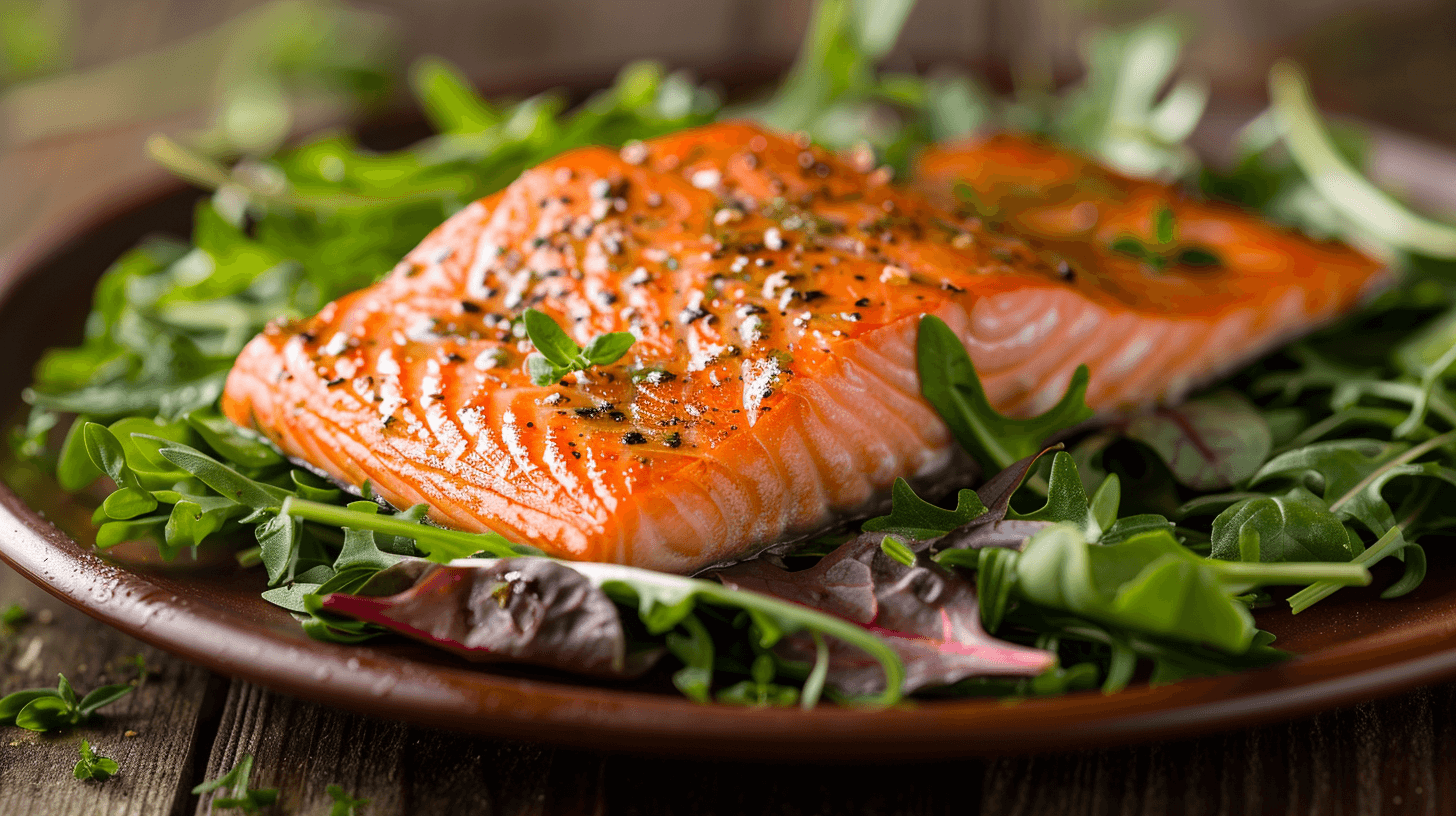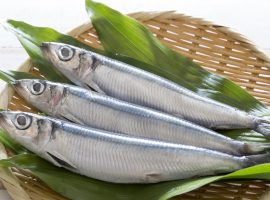Omega-3 Fatty Acids: Understanding Their Role in Inflammation
Omega-3 fatty acids are essential fats that the body cannot produce on its own, necessitating their acquisition through diet. These polyunsaturated fats are pivotal in modulating inflammatory processes within the body. Eicosapentaenoic Acid (EPA) and Docosahexaenoic Acid (DHA) are long-chain omega-3 fatty acids found abundantly in fish, and they play a significant role in heart and brain health, as well as in regulating mood.
The Distinctive Functions of EPA and DHA
EPA is renowned for its anti-inflammatory properties, which are instrumental in cardiovascular protection and mood stabilisation. DHA, on the other hand, is crucial for brain health and development, particularly in children. Both EPA and DHA contribute to the structural integrity of cell membranes, enhancing their fluidity and function, which is essential for optimal health.
Short-Chain vs. Long-Chain Omega-3s: A Comparison
The primary distinction between short-chain and long-chain omega-3 fatty acids lies in their molecular structure and subsequent biological effects. Short-chain omega-3s, such as Alpha-Linolenic Acid (ALA), are found in plant sources and require conversion into long-chain forms to be utilised effectively by the body. However, this conversion process is inefficient in humans, making direct consumption of long-chain omega-3s from fish a more effective means of reducing inflammation.
The Body’s Utilisation of Omega-3s from Fish
Upon consumption, omega-3 fatty acids from fish are incorporated into cell membranes, influencing cell signalling pathways and the production of anti-inflammatory molecules. This integration of EPA and DHA into cellular structures helps to mitigate inflammatory responses, thereby providing therapeutic benefits for conditions characterised by chronic inflammation.
Identifying Omega-3 Rich Fish

When seeking to enhance your diet with omega-3 fatty acids for their anti-inflammatory benefits, certain fish stand out for their rich content. Salmon, mackerel, and sardines are considered some of the best sources. These species contain high levels of eicosapentaenoic acid (EPA) and docosahexaenoic acid (DHA), which are long-chain omega-3 fatty acids known for their efficacy in reducing inflammation.
Comparing Omega-3 Levels in Fish
- Salmon: Renowned for its omega-3 richness, particularly wild-caught varieties.
- Mackerel: Offers a substantial amount of EPA and DHA, with the bonus of being low in mercury.
- Sardines: Small yet mighty, sardines are an excellent source of omega-3s and are also low in contaminants.
Including these fish in your diet not only contributes to the management of inflammatory conditions but also supports cardiovascular health and cognitive function.
Selecting the Best Fish at the Market
To ensure you’re selecting the highest quality omega-3-rich fish, look for:
- Freshness: Fish should have clear eyes, firm flesh, and a clean smell.
- Labels: Certifications indicating sustainable practices and low mercury levels.
- Variety: Incorporate a mix of these fish into your diet to balance nutrient intake.
By choosing these types of fish, you’re making a proactive choice towards a diet that supports the reduction of inflammation and promotes overall well-being.
Incorporating Fish into Anti-Inflammatory Diets

The Mediterranean and DASH diets are renowned for their anti-inflammatory properties, with oily fish playing a pivotal role in both. These diets are rich in omega-3 fatty acids, which are crucial in managing inflammatory conditions such as arthritis and psoriasis.
Role of Oily Fish in the Mediterranean and DASH Diets
- Mediterranean Diet: Emphasises the consumption of fish at least twice a week, alongside fruits, vegetables, whole grains, and healthy fats.
- DASH Diet: While focusing on reducing sodium intake, it also recommends servings of fish as part of a balanced diet to manage hypertension.
Broad Health Benefits of Anti-Inflammatory Diets
Adopting the Mediterranean or DASH dietary patterns may contribute to a reduction in inflammation and also enhance overall health. These diets have been associated with lower risks of chronic diseases, improved weight management, and better mental health.
Meal Planning Tips for Anti-Inflammatory Diets
To integrate these diets into your routine:
- Plan Your Meals: Include fish like salmon or mackerel in your weekly meal plan.
- Diverse Recipes: Explore recipes that incorporate fish in a variety of ways, such as grilled, baked, or as part of a salad.
- Consistent Servings: Aim for at least two servings of oily fish per week to meet omega-3 intake recommendations.
By following these guidelines, you can effectively incorporate fish into your diet, reaping the anti-inflammatory benefits while supporting your overall health.
Monitoring Mercury in Fish for Safe Consumption

Mercury content in fish is a significant concern, particularly for vulnerable populations such as pregnant women and young children. High levels of mercury can lead to neurological and developmental issues, making it crucial to select fish with lower mercury levels.
Fish Varieties with Lower Mercury Levels
- Salmon: Known for its omega-3 richness and typically low in mercury.
- Sardines: Small in size, these fish have shorter lifespans, resulting in less mercury accumulation.
- Mackerel: Certain types like Atlantic mackerel are safe choices due to their low mercury content.
Guidelines for Pregnant Women
Pregnant women are advised to:
- Limit Intake: Consume up to 12 ounces of low-mercury fish per week.
- Avoid High-Mercury Fish: Steer clear of fish known for high mercury levels, such as shark and swordfish.
- Diversify Seafood Choices: Include a variety of seafood in the diet to minimise potential mercury exposure.
General Consumption Recommendations
To minimise health risks associated with mercury in fish:
- Choose Wisely: Opt for fish known for lower mercury levels.
- Moderation: Follow consumption guidelines provided by health authorities.
- Stay Informed: Keep abreast of the latest advisories on mercury levels in seafood.
By adhering to these guidelines, consumers can enjoy the anti-inflammatory benefits of fish while minimising potential health risks.
Sustainable Choices: The Environmental Impact of Fishing

Sustainable fishing practices are essential to maintaining healthy marine ecosystems and ensuring the longevity of fish populations. By choosing sustainably sourced fish, consumers play a direct role in promoting the conservation of aquatic species and habitats.
The Significance of Sustainable Fishing
- Conservation: Sustainable fishing helps to prevent overfishing, supports biodiversity, and maintains the balance of marine life.
- Ecosystem Health: It ensures that fishing methods do not harm the environment, allowing ecosystems to thrive and regenerate.
Identifying Sustainable Seafood
Consumers should look for the following certifications and labels to ensure they are purchasing sustainably sourced fish:
- Marine Stewardship Council (MSC): A widely recognised certification indicating sustainable fishing practices.
- Aquaculture Stewardship Council (ASC): Certifies responsibly farmed seafood.
- Blue Label: Denotes fish caught through environmentally friendly methods.
Frozen Fish Direct’s Commitment to Sustainability
Frozen Fish Direct ensures the sustainability of their products by:
- Sourcing Ethically: Partnering with suppliers who adhere to strict sustainability standards.
- Transparency: Providing clear information about the origin and methods used to catch or farm the seafood they offer.
- Quality Assurance: Regularly reviewing their sourcing policies to align with the latest environmental guidelines and best practices.
By prioritising sustainability, Frozen Fish Direct not only contributes to the preservation of marine life but also offers consumers the peace of mind that their seafood choices support ecological well-being.
Navigating Fish Allergies and Omega-3 Intake

For individuals with fish allergies, navigating dietary choices to reduce inflammation without triggering an allergic reaction is crucial. Allergenic proteins in fish can vary significantly, affecting individual responses and necessitating personalised precautions.
Precautions for Individuals with Fish Allergies
- Consult Healthcare Providers: Before making dietary changes, it’s essential to seek advice from an allergist or dietitian.
- Read Labels Carefully: Always check food labels for potential fish ingredients, especially in processed foods.
- Cross-Contamination Awareness: Be vigilant about cross-contamination in kitchens and when dining out.
Understanding Allergenic Proteins in Fish
- Protein Variability: Different fish species contain various allergenic proteins, which can cause a range of allergic responses.
- Individual Response: Allergic reactions can range from mild to severe, so understanding one’s personal triggers is vital.
Alternatives to Fish for Omega-3 Fatty Acids
For those unable to consume fish, alternative sources of omega-3s include:
- Plant-Based Options: Flaxseeds, chia seeds, and walnuts are rich in alpha-linolenic acid (ALA), a precursor to EPA and DHA.
- Algae-Based Supplements: These can provide DHA and EPA directly and are a viable option for vegetarians and individuals with fish allergies.
By considering these alternatives, consumers with fish allergies can still obtain the necessary omega-3 fatty acids to support their anti-inflammatory dietary goals.
Optimal Cooking Methods for Preserving Omega-3

Maximising the anti-inflammatory benefits of fish involves using cooking methods that preserve the integrity of omega-3 fatty acids. Techniques such as steaming, baking, and grilling are not only healthful but also help in retaining the essential nutrients.
Impact of Cooking Techniques on Nutritional Value
- Steaming: Gently cooks fish, preserving omega-3 content and preventing the formation of harmful compounds.
- Baking: Requires minimal added fats, maintaining the fish’s natural omega-3 levels and reducing calorie intake.
- Grilling: Quick and high-heat method that can preserve omega-3s, though care must be taken to avoid charring.
Anti-Inflammatory Cooking Techniques
Incorporating anti-inflammatory spices and herbs, such as turmeric and ginger, can enhance the health benefits of fish dishes. Utilising olive oil, a staple in the Mediterranean diet, adds healthy monounsaturated fats to the meal.
Freshness and Nutrient Retention by Frozen Fish Direct
Frozen Fish Direct ensures optimal nutrient retention by:
- Flash Freezing: Their fish products are rapidly frozen, locking in freshness and preserving omega-3 levels.
- Quality Control: Rigorous standards are maintained to ensure that the fish remains at peak nutritional value from catch to delivery.
- Convenience: Offering a variety of fish, Frozen Fish Direct provides a convenient way to include high-quality, nutrient-rich seafood in your diet.
Nutritional Composition of Fish

Fish is a powerhouse of nutrition, offering a rich profile of proteins, vitamins, and minerals. These nutrients are essential for maintaining a healthy body and reducing inflammation.
Protein, Vitamins, and Minerals in Fish
- Protein: Fish provides high-quality protein that is easily digestible and contains all the essential amino acids your body needs.
- Vitamins: It is a good source of B vitamins, particularly B12 and niacin, which are vital for energy production and the maintenance of cells.
- Minerals: Fish is rich in minerals like selenium, iodine, and zinc, which support immune function and thyroid health.
Nutrient Bioavailability from Fish
Compared to other food sources, the nutrients in fish are highly bioavailable, meaning your body can absorb and use them efficiently. This is particularly true for omega-3 fatty acids, which are more readily available from fish than plant sources.
Guidelines for Fish Consumption
To maximise health benefits:
- Frequency: Aim to consume fish at least twice a week, as recommended by health authorities.
- Variety: Include different types of fish in your diet to get a range of nutrients.
- Balance: Pair fish with a variety of other foods, such as vegetables and whole grains, to ensure a balanced nutrient intake.
By following these guidelines, you can ensure that you’re getting the full spectrum of nutritional benefits that fish has to offer.
Enhancing Cardiovascular Health Through Omega-3-Rich Fish

Regular consumption of fish high in omega-3 fatty acids is associated with numerous cardiovascular benefits. These essential nutrients, particularly EPA and DHA, are known to improve heart health by reducing inflammation and lowering blood pressure.
Impact of Omega-3s on Lipid Profiles
Incorporating omega-3-rich fish into your diet can lead to favourable changes in lipid profiles, including:
- Reduction in Triglycerides: Omega-3s can significantly lower triglyceride levels, which is a type of fat found in the blood.
- Stabilisation of Arterial Plaque: These fatty acids help prevent the development of harmful plaque in the arteries.
- Decrease in Blood Pressure: Regular intake of omega-3s has been shown to reduce blood pressure levels.
Fish Varieties Beneficial for Heart Health
Certain fish are particularly beneficial for heart health due to their high omega-3 content:
- Salmon: Offers a high concentration of omega-3 fatty acids with low mercury levels.
- Mackerel: Another excellent source of omega-3s, mackerel also has anti-inflammatory properties.
- Sardines: These small fish are not only rich in omega-3s but also contain other heart-healthy nutrients like calcium and vitamin D.
Frozen Fish Direct’s Role in Promoting Heart-Healthy Choices
Frozen Fish Direct assists customers in making heart-healthy choices by:
- Providing a Selection: Offering a variety of omega-3-rich fish options.
- Ensuring Quality: Sourcing from sustainable and responsible fisheries.
- Delivering Freshness: Utilising quick-freeze methods to retain the nutritional value of the fish.
By choosing the right types of fish and preparing them in health-conscious ways, you can significantly contribute to the well-being of your cardiovascular system.
Ethical and Ecological Considerations in Fish Consumption

The environmental impact of fishing on marine ecosystems is a growing concern. Overfishing, habitat destruction, and bycatch are depleting fish populations and disrupting the ecological balance.
Marine Ecosystems and Sustainable Fishing
- Overfishing: This practice threatens the sustainability of fish stocks and the balance of marine life.
- Bycatch: Non-target species caught during fishing can significantly impact biodiversity.
- Habitat Destruction: Certain fishing methods can damage the seabed and other habitats, affecting numerous marine species.
Fish Conservation and Marine Omega-3 Fatty Acids
Conserving fish populations is crucial for maintaining the levels of marine n-3 fatty acids, which are vital for human health and the health of the ecosystem. Sustainable fishing practices help to ensure that these essential nutrients remain available for future generations.
Ethical Choices in Seafood Consumption
Consumers should consider the following ethical aspects when selecting seafood:
- Source: Opt for fish from sustainable and responsibly managed fisheries.
- Certification: Look for sustainability certifications like MSC or ASC on seafood products.
- Awareness: Stay informed about the origins of seafood and the practices used to harvest it.
Frozen Fish Direct’s Commitment to Sustainability
Frozen Fish Direct addresses ethical and ecological considerations by:
- Sourcing Responsibly: Partnering with fisheries that employ sustainable practices.
- Transparency: Providing customers with information about the source and sustainability of their seafood.
- Quality Assurance: Ensuring that their products meet high environmental and ethical standards.
By making informed choices and supporting companies that prioritise sustainability, consumers can contribute to the health of marine ecosystems and the ethical consumption of fish.
Weighing the Benefits: Fish Oil Supplements vs. Whole Fish

When considering omega-3 intake for inflammation reduction, consumers are faced with the choice between fish oil supplements and consuming whole fish. Each option has its own set of advantages and considerations.
Absorption of Omega-3s: Supplements vs. Whole Fish
- Fish Oil Supplements: These often provide concentrated doses of EPA and DHA, which may be beneficial for those with specific health goals or dietary restrictions.
- Whole Fish: Consuming fish provides a broader nutritional profile, including protein, vitamins, and minerals, which can enhance overall health beyond omega-3 intake.
Making an Informed Decision
Consumers should consider the following when choosing between supplements and whole fish:
- Dietary Restrictions: Supplements can be a practical alternative for individuals who do not consume fish.
- Nutritional Balance: Whole fish offers additional health benefits that supplements alone may not provide.
- Purity and Quality: It is crucial to select high-quality supplements free from contaminants, just as one would choose low-mercury fish.
Frozen Fish Direct’s Offerings
Frozen Fish Direct caters to a variety of preferences by:
- Providing Quality Seafood: Offering a selection of frozen fish rich in omega-3s, ensuring freshness and nutrient retention.
- Supporting Dietary Choices: For those considering supplements, Frozen Fish Direct provides the necessary information to make an informed choice, emphasising the quality and sustainability of their seafood options.
Tailoring Fish Consumption to Personal Health Goals

To align fish consumption with personal health objectives and dietary restrictions, consider the following strategies:
Personalising Your Diet
- Identify Specific Needs: Assess your health goals, whether it’s reducing inflammation, managing heart health, or supporting cognitive function.
- Consult Professionals: Work with a healthcare provider or dietitian to determine the types and amounts of fish that best suit your dietary needs.
Incorporating Fish into a Balanced Diet
- Diverse Selection: Rotate between different types of omega-3-rich fish to enjoy a variety of flavours and nutrients.
- Preparation Matters: Opt for cooking methods that preserve the integrity of omega-3s, such as baking or steaming.
Staying Informed on Fish Consumption
- Research Updates: Keep abreast of the latest studies and dietary guidelines regarding omega-3 intake and fish consumption.
- Educational Resources: Utilise reputable sources, such as health organisations and academic journals, for the most current information.
Frozen Fish Direct’s Role in Informed Choices
Frozen Fish Direct aids customers in making informed dietary choices by:
- Providing Information: Offering detailed descriptions and nutritional profiles of their seafood products.
- Quality Assurance: Ensuring that all fish are sourced sustainably and frozen promptly to maintain nutritional value.
- Customer Support: Offering guidance on selecting the right fish to meet individual health and dietary requirements.









